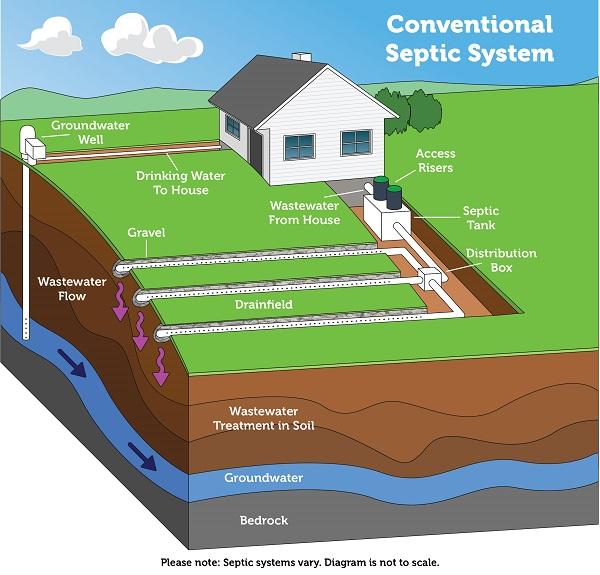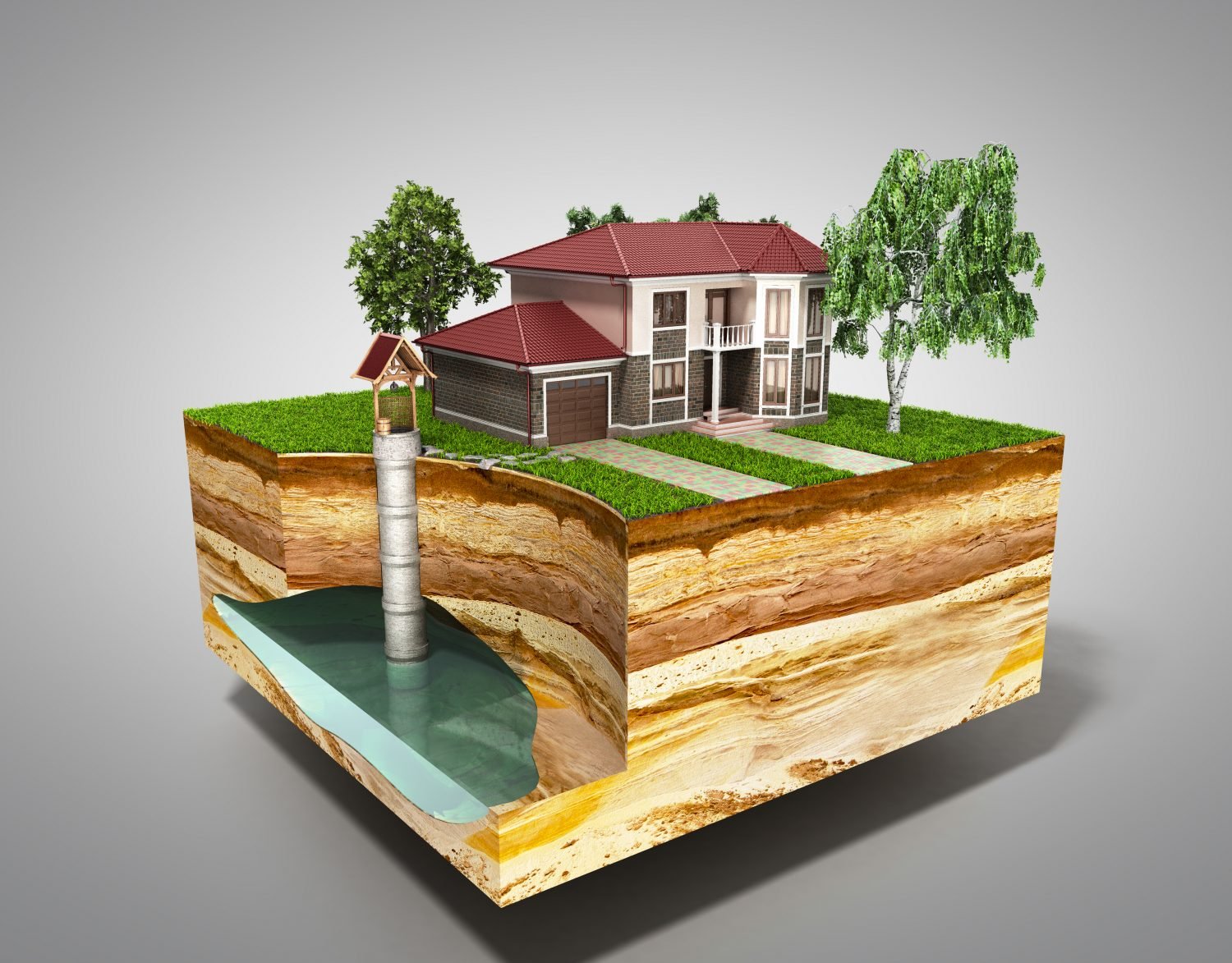This is the first question any potential buyer of property in our area should be asking, especially when looking for a fabulous view.
Where is my water coming from? The plateau receives rainforest amounts of precipitation in most years, but finding a productive well, especially in high, rocky areas, can be a challenge. If the parcel you like does not have the benefit of a neighborhood or municipal water system, you will have to have a well and pump installed. Most well drilling companies in our area are capable of drilling deep wells, which is important because view opportunities may require a depth of 800 feet or more. This work can get expensive. A wise buyer will investigate pricing on drilling before making an offer or during a due diligence period. She should also be aware that the pump required to bring that water to the surface is a separate expense. The deeper the well, the more horsepower will be needed to deliver the water to your planned home. It is not unusual for a buyer to be quoted prices between $5,000 and $12,000 for the pump equipment and installation depending on the size of the pump.
When water is found, but gallons per minute production is too low for a home, there is another possible solution. For low producing wells, or older wells experiencing cracks, fracking may improve performance. Miller Well Drilling of Hayesville, NC, discusses hydro fracking on their
website:
Today, most drilling companies bring in a fracker whenever they have exhausted the limits of their drilling equipment. Water well hydrofracking uses only potable water and usually produces a minimum of 50% yield improvement in the well, making a formerly unusable well sustainable for the client’s needs. If the well was making 2 gpm before fracking, it’d be making a minimum of 3 afterwards. Often we see HUGE improvements: 2 gpm wells jumping to 20, or wells with low static water levels becoming artesian! It is also economical, costing far less than speculating on a new drilled hole. For this reason, more and more folks are turning to water well hydrofracture as the most dependable method to develop unproductive wells.
When We Frack| Part I in a Series on Hydrofracture of Water Wells
For additional information on wells and well maintenance, www.watersystemscouncil.org
Water sources in the mountains can be problematic, but with thought, care and diligence, many problems can be solved. Having experience with these resources and ongoing relationships with the people who can solve these problems is value that an experienced real estate broker can bring to the table.
 Where is my water going? When there is no neighborhood or municipal sewer system, a land buyer may apply for a county septic permit. After processing of the application, a county health department environmental engineer visits the site. In the best case scenario, the engineer is able to design a traditional system, including tank and drain lines, which fit on the property appropriately away from any nearby well head and the home itself. A North Carolina licensed septic installer is retained to give an estimate and execute the project. So simple!
Where is my water going? When there is no neighborhood or municipal sewer system, a land buyer may apply for a county septic permit. After processing of the application, a county health department environmental engineer visits the site. In the best case scenario, the engineer is able to design a traditional system, including tank and drain lines, which fit on the property appropriately away from any nearby well head and the home itself. A North Carolina licensed septic installer is retained to give an estimate and execute the project. So simple!
In the mountains of western North Carolina, however, depending on the rock and soil depth, different types of soils, such as saprolite or clay, can present design issues for septic system engineers. These soils may cause problems in a septic field. In the case of saprolite, county engineers may reach an impasse and require specific test pits to be dug. This expense is in addition to the fee charged for the application for septic permit to the appropriate county. Private soil engineers can work with you on development and installation of a specialized system, if needed. In cases of delicate soils and slopes, systems may need to be hand dug. Be sure your installer is capable of such work and works closely with the county at each stage. The engineer will return to inspect and issue the permit on the final system.
Other questions to ask when purchasing undeveloped land include: What is the acreage? Is there an existing survey? Can that be updated or do you need a new one? Are there zoning or deed restrictions on the type of home you can build on a particular parcel? What attorney will you use to be sure all liens, encroachments, easements are fully vetted? Is the road public, private, county, state? Is electric service available? Who is providing the internet in this neighborhood? How is the cell phone service? As the work from home culture continues, these
will be important questions for buyers whether they will be the primary users of the home or whether they will invest in marketing to tenants for vacation or long-term rentals.
When choosing your real estate professional, ask about their experience and personal connections with experts in all these areas. With years of experience in Highlands, Cashiers, and Glenville areas, I and our experienced team at Berkshire Hathaway HomeServices Meadows Mountain Realty can help you purchase with confidence.
Author info:
Dinah Davis, Broker
Berkshire Hathaway HomeServices Meadows Mountain Realty
828-200-2486
https://dinahdavis.meadowsmtnrealty.com
Dinah has been a licensed NC broker for 24 years. She is a graduate of Westminster Schools, in Atlanta, GA, Dartmouth College and UGA School of Law.

